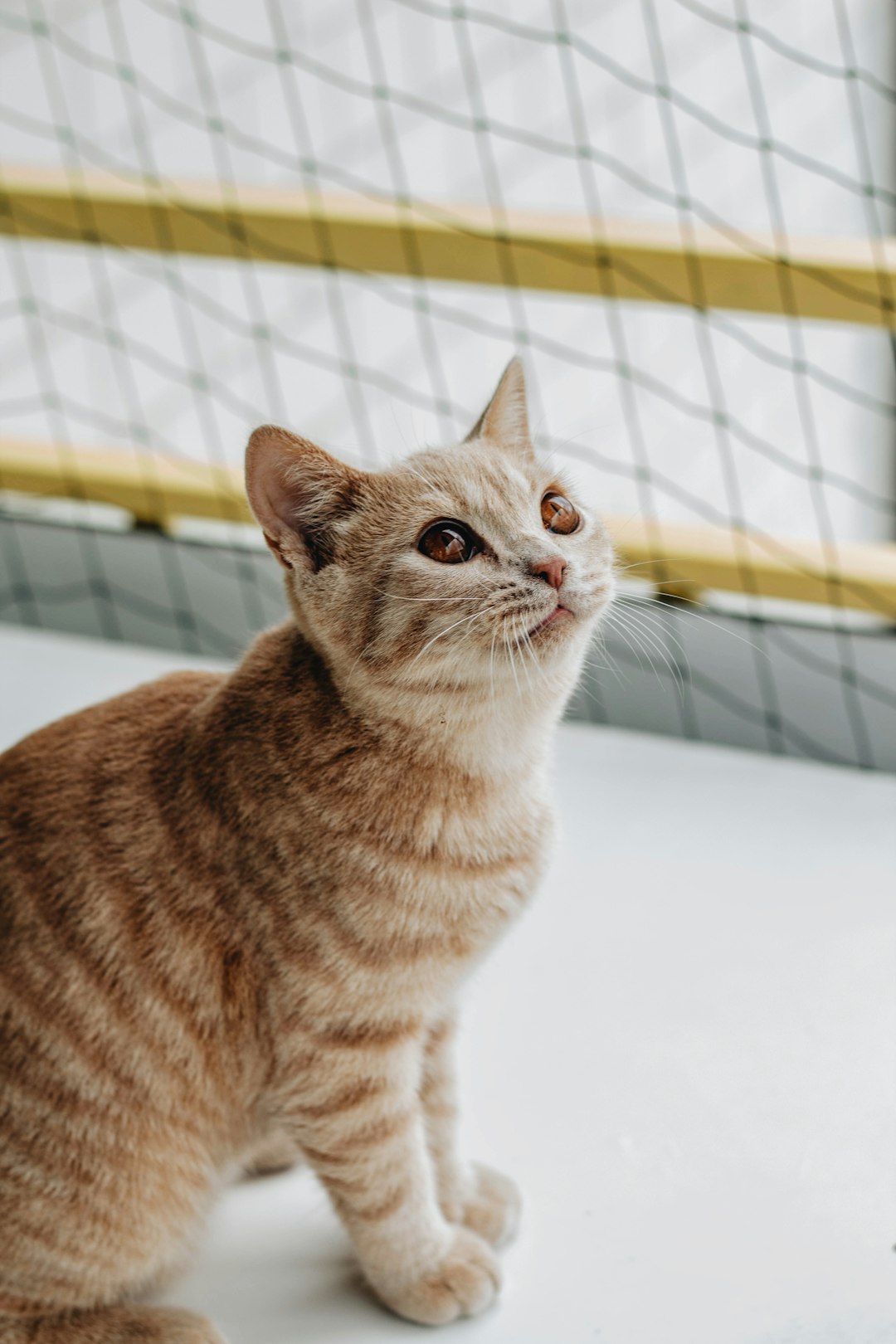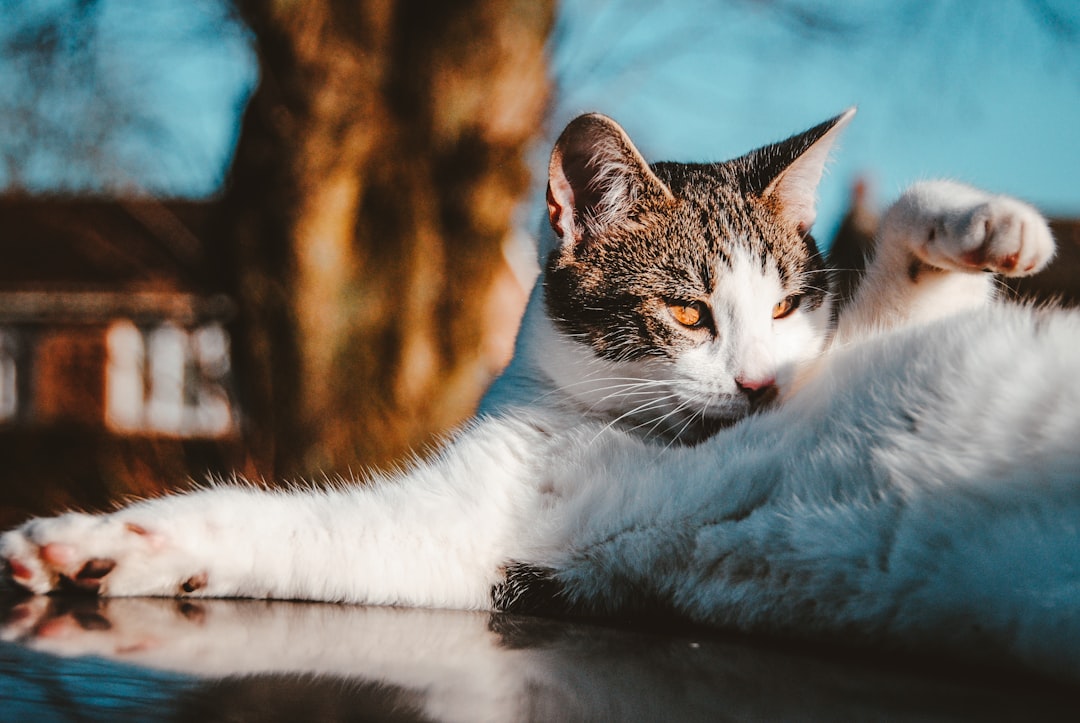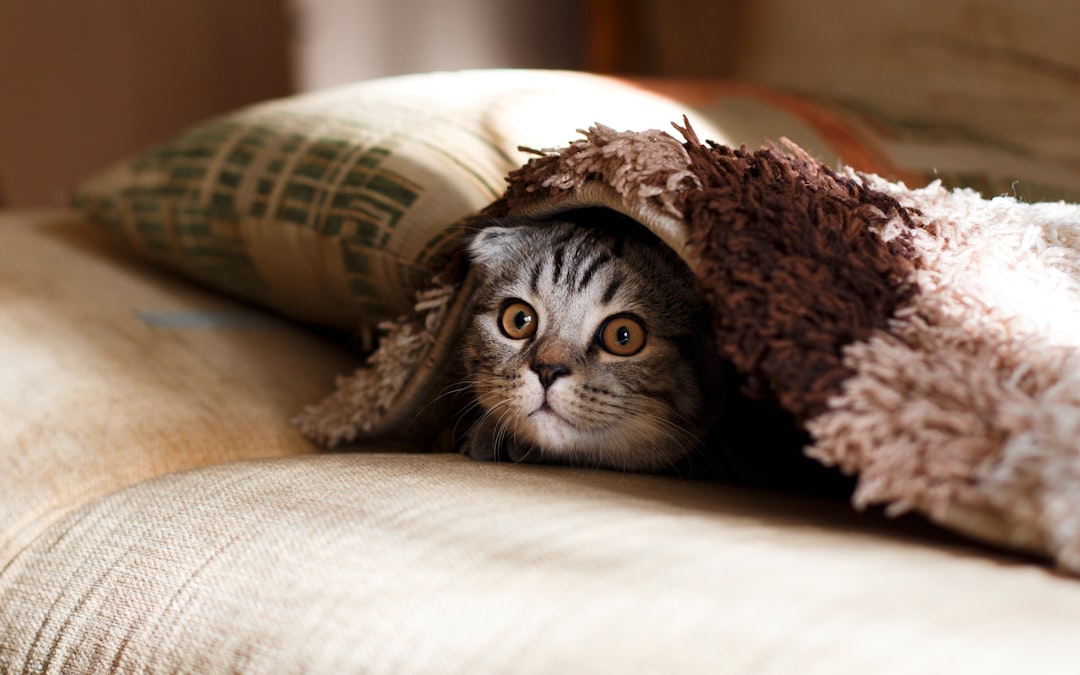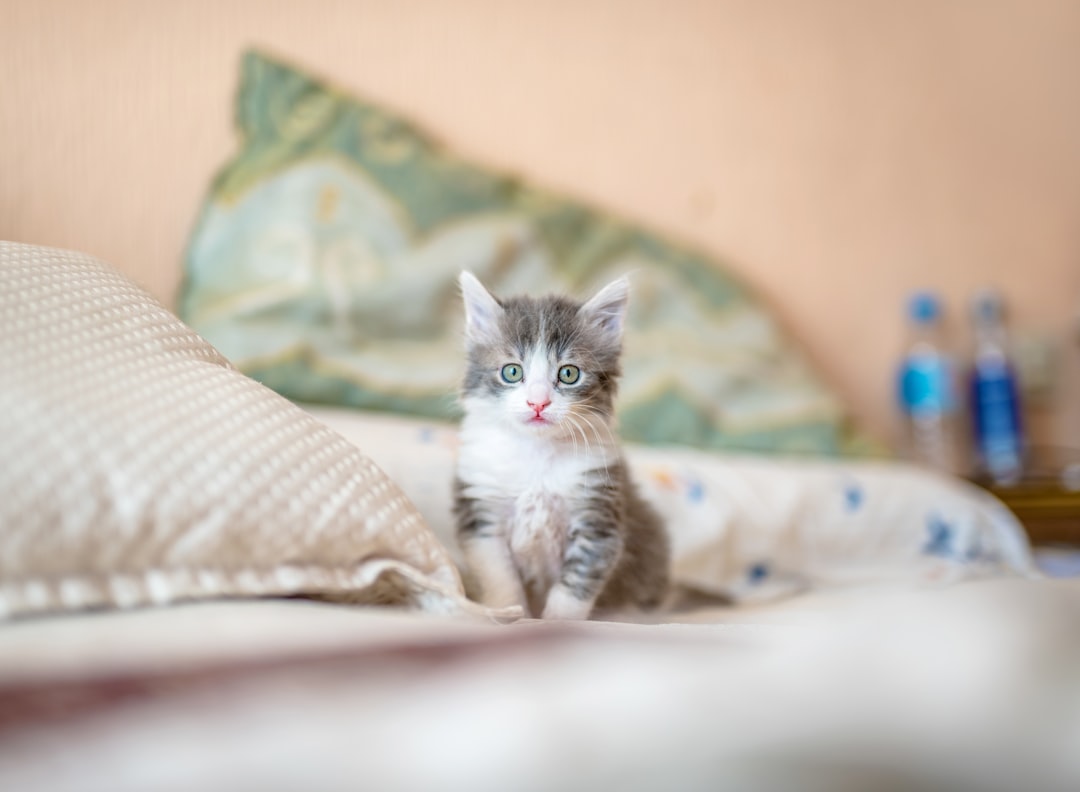If your cat has diarrhea, it can be concerning for both you and your furry friend. Understanding the common causes of diarrhea in cats is crucial for effective treatment and prevention. Various factors, such as dietary changes, infections, or underlying health issues, may lead to gastrointestinal distress. Identifying symptoms early on can help you take timely action, ensuring your cat maintains optimal digestive health. This blog post delves into the key causes, treatment options, and preventive measures, empowering you to support your cat’s well-being effectively.
Common Causes of Diarrhea in Cats
When your cat has diarrhea, it can often result from a variety of causes. Understanding these can help you address the issue effectively. Here are some common reasons:
Dietary Changes: Sudden changes in food or introducing new treats can upset your cat’s stomach.
Infections: Bacterial, viral, or parasitic infections can lead to gastrointestinal disturbances.
Stress: Cats are sensitive to stress. New environments or changes in routine may cause diarrhea.
Food Intolerances: Some cats may develop sensitivities to specific ingredients, leading to digestive issues.
Medications: Certain medications can disrupt the gut balance, resulting in diarrhea.
Underlying Health Conditions: Chronic conditions like inflammatory bowel disease or pancreatitis can cause repeated episodes of diarrhea.
| Cause | Description |
|---|---|
| Dietary Changes | Introduction of new food or treats |
| Infections | Bacterial, viral, or parasitic infections |
| Stress | Changes in environment or routine |
| Food Intolerances | Sensitivity to specific ingredients |
| Medications | Disruption of gut balance due to certain medicines |
| Health Conditions | Chronic diseases leading to gastrointestinal issues |
By recognizing the cause when your cat has diarrhea, you can better determine appropriate treatment and preventive measures.

Symptoms to Watch For
When your cat has diarrhea, it’s essential to recognize the signs early to ensure prompt treatment. Here are the most common symptoms to watch for:
- Frequent, loose stools: The hallmark of diarrhea is a sudden change in the consistency of your cat’s feces. Watch for watery or mushy stools.
- Increased urgency: Your cat may seem to need to go outside or to the litter box more often than usual.
- Vomiting: This can accompany diarrhea, and it’s crucial to monitor the frequency and severity.
- Lethargy: If your cat has less energy or appears unusually tired, this may indicate an underlying issue.
- Dehydration: Signs include dry gums, excessive thirst, and decreased skin elasticity. A dehydrated cat can quickly become critical.
- Loss of appetite: If your cat refuses food for more than a day, this could be a red flag, especially if they also have diarrhea.
Recognizing these symptoms early can help manage your cat’s condition effectively. If your cat has diarrhea, especially if combined with severe symptoms, consult your veterinarian as soon as possible. Prompt attention can prevent more serious health complications.
When to Consult a Veterinarian
Recognizing when your cat has diarrhea can be crucial for their health. While occasional diarrhea may not be alarming, certain indicators should prompt a visit to the veterinarian.
- Severity and Duration: If diarrhea lasts more than 24 hours or is severe, it’s time to seek help.
- Accompanying Symptoms: Watch for additional signs such as:
- Vomiting
- Lethargy
- Loss of appetite
- Blood in the stool
- Age and Health Status: Kittens, senior cats, or those with pre-existing conditions need prompt attention, as they are more vulnerable.
- Dehydration Signs: If your cat shows signs of dehydration, such as dry gums, increased thirst, or lethargy, contact your vet immediately.
To ensure your cat’s well-being, monitoring these factors will help you decide when it’s crucial to act. Remember, if your cat has diarrhea, especially with concerning symptoms, don’t hesitate to consult a veterinarian to prevent complications.
Diagnostic Tests for Diarrhea in Cats
When your cat has diarrhea, it’s essential to determine the underlying cause. Veterinarians may recommend several diagnostic tests to evaluate your cat’s condition effectively. Here are some common tests:
Physical Examination: Assessing your cat’s overall health, weight, and hydration levels.
Fecal Analysis: Testing the stool for parasites, bacteria, or abnormalities.
Blood Tests: Checking for infections, anemia, or organ function issues.
Ultrasound: Using imaging to view the abdominal organs and detect abnormalities.
X-rays: Identifying blockages or foreign objects in the digestive system.
| Test Type | Purpose | Frequency of Use |
|---|---|---|
| Physical Examination | Initial health assessment | Always first step |
| Fecal Analysis | Detect parasites/bacteria | Common for diarrhea cases |
| Blood Tests | Check overall health and organ function | When severe symptoms arise |
| Ultrasound | Detailed visualization of organs | If other tests are inconclusive |
| X-rays | Identify blockages or foreign objects | If physical exam indicates need |
When your cat has diarrhea, timely diagnostics lead to effective treatment. Don’t hesitate to consult your veterinarian for the best course of action.

Treatment Options for Diarrhea
When your cat has diarrhea, quick and effective treatment can alleviate discomfort and promote recovery. Consider the following options:
Dietary Changes: Transition to a bland diet such as boiled chicken or rice. Gradually reintroduce their regular food after diarrhea resolves.
Hydration: Ensure your cat drinks plenty of water. Dehydration is a risk with diarrhea, so encourage fluid intake by offering fresh water or electrolyte solutions.
Medications: Veterinarians may prescribe medications such as:
- Probiotics: Help restore gut flora.
- Antidiarrheal agents: Control diarrhea symptoms.
Veterinary Treatment: If the diarrhea persists or is severe, consult your vet. They might conduct diagnostic tests to pinpoint the cause and suggest stronger medications or therapies.
Home Remedies: Some owners find success with:
- Pumpkin: A small amount adds fiber and can help firm stool.
- Bone broth: Reinforces hydration while being easy on the stomach.
In summary, if your cat has diarrhea, promptly evaluate and apply these treatment options to support their recovery. Always consult a veterinarian if symptoms worsen or last more than a couple of days.
Home Remedies and Dietary Changes
When your cat has diarrhea, implementing home remedies and dietary changes can provide relief and promote recovery. Consider these options:
Dietary Adjustments:
- Bland Diet: Transition your cat to a bland diet of boiled chicken and rice to soothe their digestive system.
- Hydration: Ensure fresh water is available. Adding low-sodium chicken broth can encourage hydration.
- High-Quality Cat Food: Switch to a high-quality, easily digestible cat food that is free from artificial additives.
Supplements & Yogurt:
- Probiotics: Adding probiotics can help restore the balance of good bacteria in your cat’s gut.
- Plain Yogurt: Small amounts of plain, unsweetened yogurt may be beneficial for some cats.
Herbal Remedies:
- Pumpkin: Canned pumpkin (not pie filling) is high in fiber and can help firm up stools.
Monitoring:
- Monitor your cat’s response to these changes; if symptoms persist for more than 24 hours or worsen, consult a veterinarian.
By implementing these home remedies and dietary changes, you can help manage your cat’s diarrhea effectively while providing comfort and care.
Preventive Measures to Avoid Diarrhea
Preventing diarrhea in your feline friend should always be a priority. Here are some effective strategies to keep your cat’s digestive health in check:
Balanced Diet: Ensure your cat eats high-quality cat food that meets their nutritional needs. Avoid sudden diet changes, as they can upset your cat’s stomach.
Hydration: Always provide fresh, clean water. Dehydration can worsen diarrhea, so monitor water intake closely.
Keep Environment Clean: Regularly clean your cat’s litter box and living space to minimize exposure to harmful bacteria.
Limit Treats: Only offer treats in moderation. Too many can upset your cat’s stomach.
Routine Vet Check-ups: Schedule regular veterinary visits for check-ups and vaccinations to catch potential issues early.
Gradual Introductions: When changing your cat’s diet or introducing new food, do it gradually over a week to reduce gastrointestinal upset.
By being proactive, you can significantly reduce the chances that your cat has diarrhea. Remember, a healthy cat is a happy cat!

Conclusion: Managing Your Cat’s Digestive Health
In conclusion, ensuring your cat’s digestive health is vital in preventing issues like diarrhea. When a cat has diarrhea, it can result from various causes, including dietary changes, infections, or underlying health conditions. To manage your cat’s digestive health effectively, consider the following strategies:
- Regular Vet Check-ups: Annual examinations can help catch issues early.
- Balanced Diet: Feed high-quality cat food suitable for their age and health concerns.
- Hydration: Ensure fresh water is always available, especially when your cat has diarrhea.
- Monitor Changes: Pay attention to changes in behavior or appetite as these can indicate health issues.
- Gradual Dietary Shifts: If changing your cat’s diet, do so slowly to avoid gastrointestinal upset.
By following these tips, you can reduce the chances of your cat developing diarrhea. Remember, if your cat has diarrhea for more than a couple of days or shows other concerning symptoms, consult your veterinarian promptly for tailored advice and treatment.
Frequently Asked Questions
What are the common causes of diarrhea in cats?
Diarrhea in cats can be caused by a variety of factors. Common causes include dietary indiscretion, infections from viruses or bacteria, parasites such as worms, and food allergies or intolerances. Environmental changes, stress, or a sudden switch in diet can also lead to gastrointestinal upset. Additionally, underlying health issues such as inflammatory bowel disease or pancreatitis can contribute to diarrhea. Because the cause can vary widely, it’s essential to monitor your cat’s behavior and consult with a veterinarian for a proper diagnosis.
How can I treat my cat’s diarrhea at home?
While some cases of diarrhea in cats may resolve on their own, it’s important to approach home treatment carefully. Begin by withholding food for 12-24 hours to give your cat’s digestive system a rest. After this period, reintroduce a bland diet, such as boiled chicken and rice. Ensure your cat remains hydrated, as diarrhea can lead to dehydration. However, if diarrhea persists for more than a day or is accompanied by vomiting, lethargy, or blood in the stool, seek veterinary care immediately.
When should I take my cat to the vet for diarrhea?
You should take your cat to the vet if diarrhea lasts more than 24 hours, if your cat shows signs of dehydration, such as dry gums or increased lethargy, or if there’s blood in the stool. Additionally, if your cat exhibits severe abdominal pain, vomiting, or any drastic changes in behavior, these are signs that a veterinarian visit is necessary. Early intervention can help prevent more serious health issues. Always trust your instincts in seeking veterinary assistance.
Can diarrhea in cats be a sign of something serious?
Yes, diarrhea in cats can sometimes indicate serious health issues. Conditions like feline leukemia virus, pancreatitis, or inflammatory bowel disease may present with diarrhea as a symptom. Additionally, prolonged diarrhea can lead to dehydration and electrolyte imbalances, which can be life-threatening if not treated. It’s crucial to not underestimate the severity of this symptom and to observe any accompanying signs of illness, such as weight loss, vomiting, or changes in appetite.



